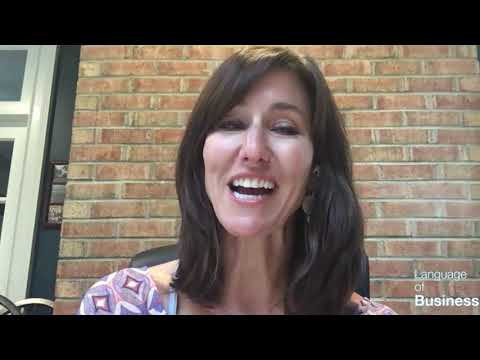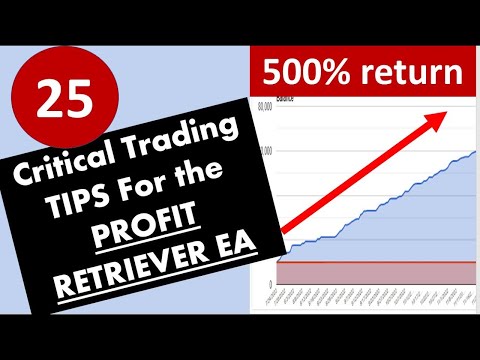Language of Business Episode 6: To Vaccinate or Not

No matter who you run into these days people want to know whether you got Pfizer, Moderna, J&J or if you're from outside the United States, something else entirely. Are all vaccines created equally? Who knows? But we will, very shortly! We're on location with Christopher Gill, Professor of Global Health at Boston University and welcome to The Language of Business. It's a pleasure to be here. Thanks for joining us. How do you differentiate amongst all of these different vaccines? So it's actually a it's a great question, because it's not a simple question um and the reason it's not simple. Is that the, the if you know the efficacy of a vaccine is going to vary a little bit depending on the population that's being studied, and also the variants that are circulating through that population of time. And so, for example, if you, you know,
if you run a study where it's all the you know the original wild type Wuhan variant, which had not yet acquired any of these sort of nasty tricks, in terms of evading the immune system, then the vaccine is going to behave, you know, very, very well. Whereas if you do a study where it's all Delta and the Delta is, you know, sneakily trying to work through your immune, you know, bypass your immune system, then the vaccine will appear to work less well. And so there's that sort of, you know, spectrum of, of challenge there and so studies that were done quite early on in the development of these new vaccines like the Pfizer and the Moderna vaccines, which were the first to come through, were largely unaffected by these variants, uh at least in the United States. Whereas, you know, some that have come much later such as the Covid vaccine
had to contend with a lot of variance in their population, which I think really punished them. If you looked at this from a high level, and regardless of the manufacturer, do you think the vaccines as a whole have been effective so far? Absolutely. And in fact, even in the the latest outbreak when you're, you know, we've been focused on this um cluster of cases in Provincetown, Massachusetts-- it's been in the news-- you know, everywhere in the last week or so, um and the the workup of this outbreak by the CDC was very interesting. But it was also a little bit
misleading, I think in the way that they presented the data. Because, for example, they said, you know, the viral loads in the patients who had been vaccinated and under vaccinated were roughly the same. And that's no doubt true. In fact, I went back and read the fine print in the MMWR and the CT values. The cycle threshold values were nearly identical, so what they said is technically true,
but it's, it's kind of missing the point that these are all people who became symptomatic for one reason or another. And so it's not representing all the people who got vaccinated. It's all the people who failed despite getting vaccinated, and what their viral loads were. And so comparing those two groups is, is, you know, and finding that they're roughly the symbol, you know, similar, doesn't tell you that the vaccines are failing. It tells you that amongst
those who failed, the viral loads were high, which is not exactly the same thing. And I think, you know, we tend to sort of miss that, and more recently there have been some some studies that that came out, and looked at the same question, but had a longitudinal follow-up. So they could see what is the the natural history of someone who became infected, had a breakthrough infection despite getting say the, you know, the Pfizer or the J&J vaccine, and there the information is very clear that the viral loads drop much faster in those have been vaccinated. So they may stay around the same height at the very beginning of an infection, but they plummet quickly. In filming for this episode several people are taking what they're calling a 'wait and see attitude.' The FDA hasn't officially approved these vaccines,
some people are reading a lot of scientific data both for and against. Given your immense knowledge of global health and epidemiology what would you say to someone who's still on the fence? These vaccines actually have been extensively studied, so the the two sort of licensure studies, pivotal licensure studies combined had about 80,000 subjects in them. It was extremely large even for vaccine studies, so that, that is unusual what those studies lacked was six month follow-up, because they they applied for emergency use with about two months worth of follow-up data. So what we're seeing is are there late deferred side effects. Now we will know the
answer to that question within the next you know four to six weeks, but in the meantime, you know, something close to 180 million people in this country have received those vaccines, and we have not seen any outcroppings of like this sort of, you know, occasional, but uh the concerning side effects, that you sometimes seen in vaccines like you know a triggering of an autoimmune disorder like Guillain-Barre syndrome, which has happened with the flu vaccine for example. Very, very, very, low rates, I mean we're talking about the one in the million range. But we have not seen that, and after 150 million people vaccinated you would expect if it was going to happen we would have seen it and it has not happened. And that's just the United States. So, you know, the European union is roughly the same. So these vaccines have been put into 300 million people on the planet so far, plus and we have not seen a safety signal. So in that regard,
I think these are probably some of the most extensively studied vaccines in history, uh and certainly some of the most effective. BU received some extremely positive press about its efforts to keep the campus safe. During the 2021 academic year what are BU's plans for the fall, regardless of whether there's a surge or not? We were very pleased that we were, you know, able to sit in the middle of a, you know, an epidemic hot spot in the City of Boston, and and prevent a, you know, a disaster on campus. And so it can be done and that was before vaccines. It was basically though all the heavy lifting was done through masking and so now with the vaccines I think what we're going to see is, you know... first of all, Bob Brown has mandated vaccines for the entire faculty, staff and student body at BU. So, you know, once that plan is executed, we will see what we have seen elsewhere. In highly vaccinated communities that there will be occasional breakthrough infections.
They will be largely inconsequential infections. The sniffles... maybe feeling lousy for a day or two... but nothing nothing catastrophic. You know, is it possible that someone might end up in the hospital? It's possible, but you know I think at this point we're talking about a very, very very low risk proposition um, and on top of that, they're going to ask us to wear masks when indoors, which seems reasonable um. I think maybe on the conservative side but I, you know, given all of the uncertainties about the Delta Variant, I think it's reasonable. Thank you very much. Dr. Christopher Gill, Professor of Global Health at Boston University. Big choices after college, right? Grad school maybe? Soar from your undergraduate major to a great career in business. Biomedical engineer to health care analyst, health science
to clinical systems analyst, mechanical engineer to solutions engineer. Before you know it, you can have a Master's degree in Management Studies. Nine months and you're in business. So much of the news these days is how individuals are being affected by Covid. Their businesses, their lives, their health. But what about the physicians and nurses who are taking care of all
of us? How are they handling this? And frankly, how are they managing their different slates of patients? We're on location virtually with Dr. Liza Meyerhardt, Internist at Newton-Wellesley Hospital, and welcome to The Language of Business. Thanks for having me, Greg. Nice to have you here. So how are you holding up? So far, I think I'm doing fairly well. Um I think it was much more challenging a year ago, when we didn't know what we were contending with, and we were kind of thrown into the mouth of the dragon, so to speak. I was working um virtually and then I was
working in the Covid wards, because they actually needed people who were not inpatient doctors to step up and come work on the front lines. So that was something I hadn't done in 17 years, and that was scary and exhilarating. And I think we've come a long way, but it's a little daunting to be taking a step backwards right now, in August of 2021. And approximately what percentage of your your patients that you see are vaccinated? So you know we live in Needham where there's about a 98% vaccination rate. Um and my office happens to be in Needham as well so I think we believe it's around 90% to 93% approximately of our patients. It's a very very high number. And of the seven percent that aren't vaccinated, does anybody know why.
It's a really good question, and something that I think all of us feel is kind of the crux of our our job, at this point, is being educators and trying to really understand the why and trying to dispel some of the misconceptions about the vaccine. And how are you doing that with the elusive seven percent? I came up against someone from my first time last week who was openly um against vaccination of Covid specifically and I kind of had to internally dialogue with myself to take a moment, and take a deep breath. Because my initial inclination was like to lurch across the exam room, which I didn't think was going to go very well. And um I think that the, you know, the most important thing is really to to get a sense of what it is that they're afraid of, or what they feel the vaccine is going to do to them. I think it's really important to
let them have space to talk honestly about what they're worried about, and then I think our job as scientific people is to really provide data that's kind of digestible in little sound bites that can explain why the science works, and explain kind of how the vaccine came to fruition, faster than any other vaccine in our history, which I think is um one of the points that a lot of people bring up as to why they're nervous. Um and I think you really have to appeal to people on a personal level. I don't think they care that it's a doctor talking to them, they certainly don't care if it's the President of the United States. I mean they really want to
hear from people that live in their communities, and so I think a lot of it is also connecting them with other people who may come from similar backgrounds, and may be able to shed some more light on their situation. In preparing for our interview I've probably read a hundred different studies, some of which indicated that unvaccinated people are spreading Covid-19 more so than vaccinated ones. Others are saying the jury is still out. What is your thought on that? So if you had asked me that a month ago, I would have said, you know, being vaccinated is not only the best safeguard against getting sick but it also is nearly impossible to spread the virus. And we we knew that from some Israeli studies, and certainly from local studies. I think we felt fairly confident that it was much less likely to spread. That the viral load in the in the nares,
or inside the nose of vaccinated people, was significantly less than that in unvaccinated people. But unfortunately data this week and largely obtained from studying the Provincetown Delta flare in the last month has shown us that the vaccinated people can spread the virus. And that their viral loads are equal, if not higher, than some unvaccinated people with the Delta Variant. So I think this kind of changes the game completely, and is one of the most I think
alarming um kind of new pieces of data that's come out recently, and really changed how we think about the evolution of this of this disease. Do you know unfortunately if people are dying, are they co-morbidity type patients, or they young and healthy? What has that data uncovered? So far so that data has been interesting. I mean a year ago, in March and April, when I was working in the hospital we didn't really know what the co-morbidities were going to be that put people at the highest risk. Of course, we thought of things like underlying heart disease, underlying malignancy, and we were very suspect about underlying pulmonary disease, lung disease so asthma smokers... emphysema. Interestingly, one of the biggest risk factors was actually body mass index. So being overweight, or being obese, was one of the largest risk factors for poor outcome. And I will say that when I was working in the hospital,
the young people that were in the intensive care unit last year, that were really fighting for their lives had an average body mass index of you know over 35 to 40. So they were really, you know, outside the norm, and that seemed to be the biggest risk factor, aside from some of the other obvious ones that we talked about. But that's kind of another counseling point when I'm speaking to patients, just about trying to get their health in check. It's really important. Dr. Meyerhardt: Thank you so very much thank you Dr. Liza Meyerhardt, internist at Newton-Wellesley Hospital and one of the frontline physicians working alongside our nurses protecting people from Covid-19. Are you a problem solver? Do you see the big picture and the small details? Want to turn big data into big decisions? Take AI to the boardroom, translate rocket science into the science of business, build your career at digital speed, with a Master's of Science in business analytics. Be ready for careers like analytics consulting, data science,
analytics strategy, data translation, BI analyst. 10 months and you're in business analytics. To vaccinate or not to vaccinate. That is very much the non-Shakespearian question. Arguably this whole thing started as a political divide-- red states versus blue states-- and currently it's morphed into almost an 'anything goes philosophy.' Some people are steadfastly against getting vaccinated, others are taking a wait-and-see attitude. Our guest who has asked that we preserve their identity as well as their voice, and is currently taking a wait and see attitude. Welcome to The Language of Business. Thank you. Why are you taking a wait-and-see attitude with the Covid vaccine? Well first of all I've been struggling with this for for many months. But one reason is the vaccine came out in eight
months and if you research vaccines, they take years to come out. The second is the vaccine industry-- they have no liability for anything if, if a company knowingly puts products out there, knowing that they can get sued. How can you trust them with a product the way they have no liability at all especially when they came out with this so fast? And another thing is this vaccine is the first time it's been used in humans. It's not approved by the FDA. I'm waiting for the approval.
I know it's a dangerous disease and it has killed people, but out of the hundreds and hundreds of people that I know that have had it, that no one has had any um adverse and problems with Covid they would get sick and then they were not sick at all. and they would just get better. So given that we've agreed to mask your face and your voice, how are you dealing with this publicly? Well publicly I don't really voice my opinion with people that I don't know,, My family and close friends know my views, my husband knows my view, people that know me support me but I'm not really out there publicly. I don't do stuff on Facebook or anything like that. If your employer made a mandate that you, and everybody else, had to get vaccinated, would you comply, would you quit, would you sue? What would you do in that particular case? That is a tough question. I would I, I may comply. I wouldn't sue. I would um
entertain the thought of finding another job. But you know I don't know the answer to that yet. Does your, does your spouse or your rest of your family-- your children-- feel the same way? My spouse does not. He's, he's vaccinated. My daughter just got vaccinated. My son is just 18. We have a doctor's appointment with him. He has some health issues so we wanted to talk with his doctor about it. We have different views, yeah. Thank you so much for joining us today, talking about your views about vaccinate versus not to vaccinate, on The Language of Business. Big choices after college, right? Grad school maybe? Soar from your undergraduate major to a great career in business. Biomedical engineer to health care analyst, health science
to clinical systems analyst, mechanical engineer to solutions engineer. Before you know it, you can have a Master's degree in Management Studies. Nine months and you're in business. How do you keep everybody educated about the pluses and minuses of Covid-19? We're on location with Dr. Carol Bascom-Slack, Assistant Professor of Medical Education at Tufts University, and welcome to The Language of Business. Thank you. Carol: How do you keep either students or colleagues educated about what's happening with all things Covid? Um I think first and foremost we make sure that our students are grounded in good scientific understanding of virology and immunology, and that actually begins long before they come to me. At the lower grades, where uh you know it's really important to make sure that students know where to get accurate information, I think there's a lot of misinformation floating around and you know, if you don't uh know where to go to get good information you can be confused pretty easily. How effective do you think the vaccines as a whole have been, to date? Well
I should start by saying I'm not an immunologist, I'm not a virologist, so my understanding is based on the literature that's available to the general public. But I think of the three approved for use in the US, uh clinical trials have shown that all are safe and effective... meaning that they do a great job at protecting people against getting severely sick. And having said that research is still continuing beyond the clinical trial stage on individuals in real world conditions, and so far that evidence has been pretty positive. Most data is on the MRNA vaccines-- those created by Pfizer, BioNTech and Moderna, because they've been available to the public for longer and I'm sure data will be reported for the Johnson and Johnson vaccine as it becomes available. But overall the vaccines have proven to be very, very effective. So much press is being given to
the mutation of Covid now with the Delta Variant. What does it exactly mean that a virus mutates? So in the case of the coronavirus that causes Covid-19 mutations uh again are simply changes in the genome that occur each time the virus replicates, probably most often the changes that occur are detrimental to the virus. They probably make it less fit but sometimes changes make a virus better at infecting or surviving inside human cells. So this is what
we're currently seeing with this Delta Variant. There was a mutation that occurred that, you know, it's a normal process that occurs in viruses and um this change led to an altered surface structure which renders the virus more um capable of better transmission and evading our immune system. And we know that there are significantly more viral particles in the airways of patients infected with Delta relative to other strains. You've spent so much time educating people on as you said earlier in our interview 'real world information,' yet there's so many millions of people across the world that are taking a wait-and-see attitude about getting vaccinated.
What would be your message, or your thoughts, to that group of people, please? The highest spread of cases and severe outcomes is in places with low vaccination rates and virtually all hospitalizations and deaths have been among the unvaccinated. Um this situation is really like none of us uh living have ever experienced before. It's hard hard to even comprehend the number of individuals dying and the toll on our health care workers and on the economy. I have friends and relatives living overseas in countries where the vaccine is not available, and so I think in the US we are extremely privileged to have had early access to vaccines. So I must say I, I find it a little frustrating to see vaccine going to waste here, while the virus continues to propagate allowing variants to emerge. As a scientist, what keeps you up at night the most about the entire pandemic? I was kind of in a state of confusion in the beginning like everyone else and I think as the data have come in it became clear that we could get this under control if we took the right measures. I was very optimistic and hopeful when the vaccines were
first approved for use and now I think I have become very concerned that we are not going to conquer this, that this is something that we are going to have to live with, that certain individuals are reluctant to get vaccinated and so this will be with us for a long period of time and I, I worry about the toll it is going to take on people's mental health and the economy, and and so on and so forth. Dr. Bascom Slack:Thank you so very much! Sure, you're welcome, thank you. Dr. Carol Bascom-Slack, Assistant Professor of Medical Education at Tufts University. Support for The Language of Business is from Boston University Questrom School of Business.
We're also available as a podcast on Spotify, Stitcher, Google play or wherever you get podcasts. Thanks for watching!
2021-09-15 11:03


